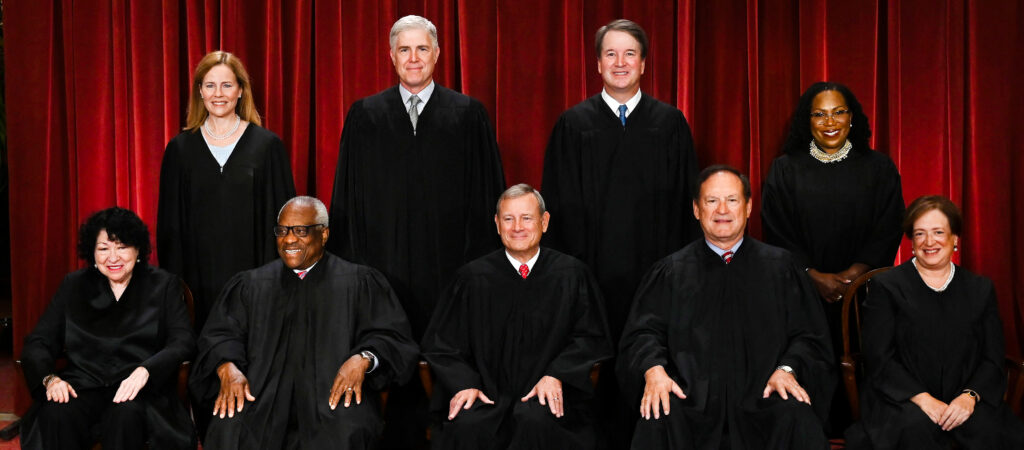For months, the mainstream news media have described the Censorship Industrial Complex as a conspiracy theory invented by the Twitter Files journalists and Republicans. The New York Times, Washington Post, PBS “Frontline,” and most other news outlets have published story after story claiming that there is an orchestrated effort by people who don’t care about the truth to mischaracterize the work of well-intentioned “misinformation researchers.”
Now, the US Supreme Court has decided to review the legality of what is termed the “Censorship Industrial Complex.” This decision comes after the Attorneys General of Missouri and Louisiana filed a lawsuit against the Biden administration, alleging that it pressured social media platforms to censor particular perspectives on topics such as Covid, elections, and more.
We eagerly anticipate upholding the 1st Amendment rights of our clients and the broader American public in the Supreme Court,” stated Jenin Younes, a staff attorney at the New Civil Liberties Association, on platform X. Younes collaborates with Columbia Law’s Professor Philip Hamburger, who was previously interviewed by Public in July. Their combined efforts are in representation of individuals such as Stanford Professor Jay Bhattacharya, who was also featured by Public in July, former UC Irvine psychiatrist Aaron Kheriaty, and Harvard’s Professor Martin Kulldorff, among others.
There’s a mix of developments. The Supreme Court approved the Biden administration’s request to temporarily halt the injunction until the case is heard later this year or the next. Consequently, US government employees can now communicate with social media companies, reversing the previous decision by the Fifth Circuit Court of Appeals. Supreme Court Justices Samuel Alito, Neil Gorsuch, and Clarence Thomas expressed their disagreement with this decision in a dissenting opinion.
Governmental interference in private expression goes against the principles of our democratic governance,” penned Alito. “Hence, today’s ruling deeply concerns me. Even though the government didn’t convincingly demonstrate any imminent significant harm, the majority chose to suspend the injunction. This allows the defendants to continue actions that potentially infringe on First Amendment rights, as recognized by the lower courts. The majority has made this decision despite the comprehensive factual conclusions drawn by the lower courts.
We concur with Alito and his colleagues, yet we’re also immensely grateful that the Supreme Court has chosen to take on the case. Many impartial legal experts believe this to be among the most critical censorship cases the Court has ever encountered. Undoubtedly, it’s the most significant in the context of the Internet’s evolution over the past three decades. The outcome will probably shape free speech discussions for the forthcoming 30 years or even longer.
Alito’s emphatic remarks indicate that there are, at the very least, three justices who recognize the profound risk posed by the so-called Censorship Industrial Complex. “Given our nation’s current historical context, the Court’s actions, I worry, may be perceived by some as endorsing the government’s authority to employ aggressive measures in influencing the narrative on a medium that’s becoming the primary source for news dissemination.”
The onus now intensifies for both the plaintiffs and the justices. The plaintiffs must elucidate to the justices the necessity for intervention to prevent the government from employing not only forceful but any tactics that incite social media and internet search entities to partake in politically biased censorship. As Hamburger pointed out, the First Amendment safeguards free speech from government intrusions that aren’t limited to coercion alone. The First Amendment explicitly states that there shall be “no law… abridging the freedom of speech, or of the press…”
As we initially disclosed, Facebook executives acquiesced to censorship requests from the Biden White House, primarily out of concern that the Biden Administration might not safeguard its $2 billion European operations.
The outcome at the Supreme Court isn’t guaranteed. The adage that the cost of liberty is constant vigilance has proven true time and again. Regardless of the Court’s decision, we remain committed to challenging and defunding the so-called Censorship Industrial Complex. While outlets like The New York Times, Washington Post, NPR, and PBS may continue promoting the narrative that the concept of the Censorship Industrial Complex is merely a speculative idea championed by Twitter Files journalists and Republicans, and that those imposing these restrictions are merely well-meaning “misinformation researchers”, the very fact that this case is being examined at the nation’s highest judicial level, garnering global interest, ensures that over time, fewer individuals will accept their perspective.

